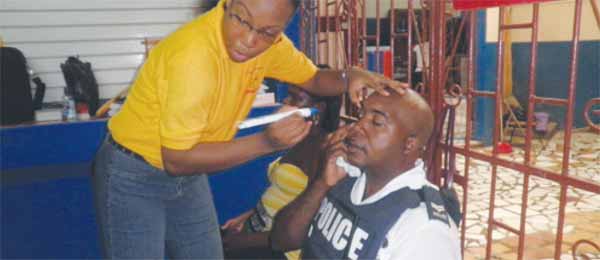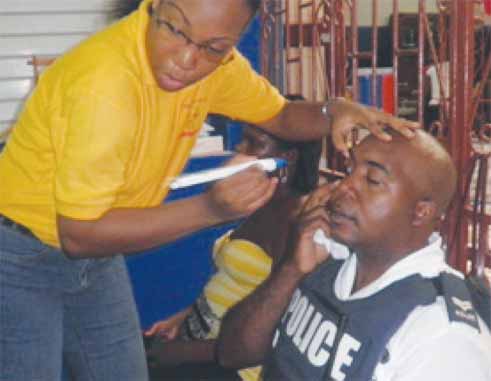
THE words sympathy and empathy are often used interchangeably; however, there is an important distinction in their definition, and more importantly, in the perception given to the situation when these terms are used.
Sympathy, as defined by the Merriam Webster Dictionary is a) an affinity, association, or relationship between persons or things wherein whatever affects one similarly affects the other b) mutual or parallel susceptibility or a condition brought about by it.
Empathy is the action of understanding, being aware of, or being sensitive to.
Saint Lucia Blind Welfare Association (SLBWA) is celebrating Blindness Awareness Month this May under the theme “Sustaining SLBWA through increased public awareness”. Through the years, SLBWA has made great strides in providing much needed eye health services not only to persons with visual impairment but to the general public and has been instrumental in the implementation of innovative projects to advance knowledge and practices in eye health on the island. This year our focus turns to increasing resources to continue working towards our goal of better eye health for all St. Lucians.
No one welcomes blindness. It may be the worst far for some of us. Although it is natural to react with sympathy when we hear of a person living with blindness; it is very important to understand that a person living with vision loss is much more in need of empathy…the sense of putting yourself into their shoes than sympathy. If we can imagine the constraints and limitations of their condition, then we are more capable of thinking how to overcome the barriers. In essence, sympathy is more an emotional reaction, whilst empathy is more pro-active.
Anyone who is diagnosed with a blinding eye condition or suddenly loses their vision must deal with the fear and anguish. And yes, they need our sympathy. But a person living with blindness continues to have the same needs and dreams. The difference is they learn to cope, adjust, and alter how they reach their goals. If we can empathize with their needs, we can help become a catalyst to help them attain their goals.
To observe a blind person waiting to cross the road with sympathy does not help them get across; but if, upon seeing this situation, we were to imagine what they need to cross the road, we would then be able to think of a way forward.
During Blindness Awareness we ask that you look, listen, and learn about your own eye health, the difficulties for persons living with blindness, and to take a step towards understanding both the limitations, and how we can alleviate them. As part of SLBWA’s services, we operate an eye clinic at Sans Souci and its available to the general public on weekdays from 9:00 to 2:30.
Empathy for persons living with blindness means seeing their situation through your eyes and hopefully looking at accomplishing their vision needs and future goals.



![Simón Bolívar - Liberator of the Americas [Photo credit: Venezuelan Embassy]](https://thevoiceslu.com/wp-content/uploads/2025/12/Simon-Bolivar-feat-2-380x250.jpg)






